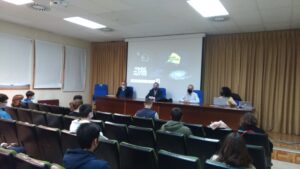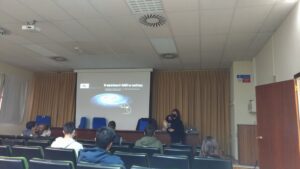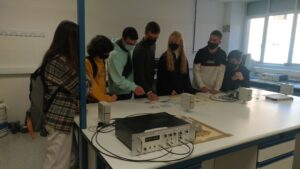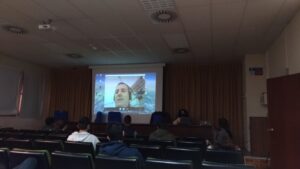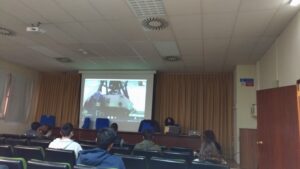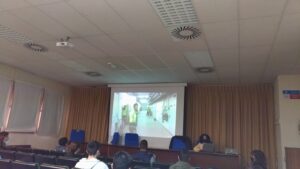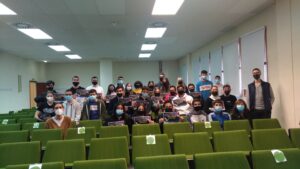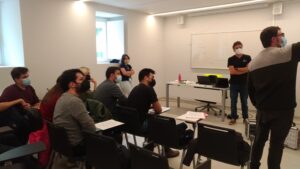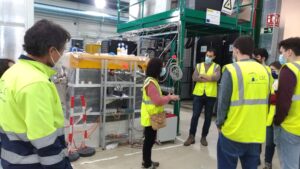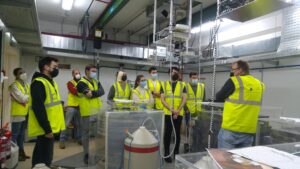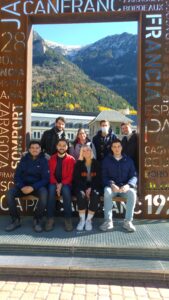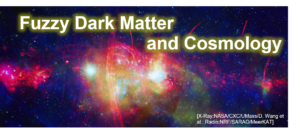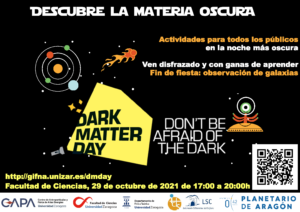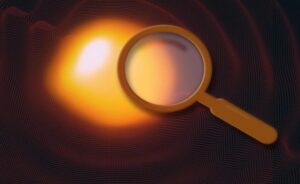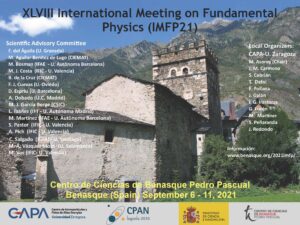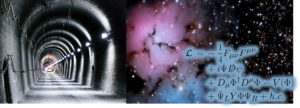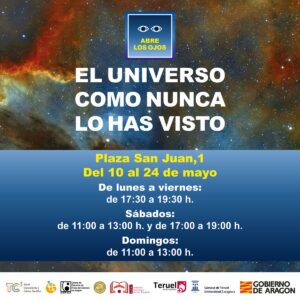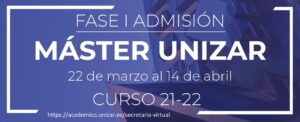¡Comienza la semana de la Materia Oscura!
Esta mañana estudiantes de bachillerato de los IES Clara Campoamor Rodríguez, La Azucarera, Miguel Servet, Andalán, Pedro de Luna e Itaca han participado en la actividad «Hands on Dark Matter» organizada por CAPA. Han asistido a charlas, conectado con el Laboratorio subterráneo de Canfranc y el Centro de estudios de Física del Cosmos de Aragón (CEFCA), han detectado radioactividad ambiental y observado trazas de rayos cósmicos en le laboratorio, comprobado la cantidad de materia oscura en una galaxia y el efecto de las lentes gravitacionales , y, finalmente, participado en un quiz, antes de la foto final. ¡Esperamos que hayan disfrutado, que hayan aprendido qué es la materia oscura y cómo la buscamos, y que nos visiten de nuevo!
